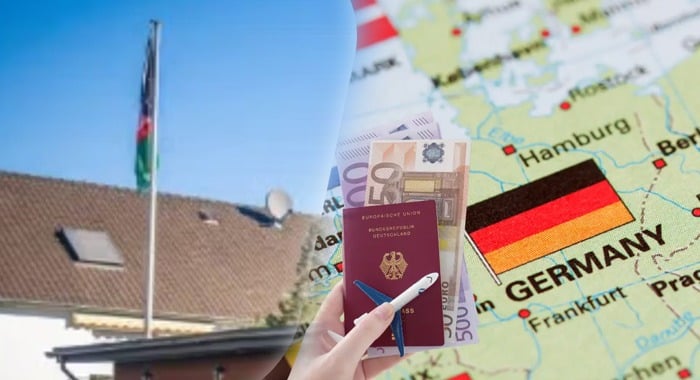The German Foreign Ministry has confirmed that two Taliban-appointed diplomats have now entered Germany and are set to assume consular roles in Berlin and Bonn, marking a new chapter in Berlin’s pragmatic engagement policy with the Taliban. According to the ministry, the appointments are aimed at ensuring basic consular services for Afghan nationals in Germany and facilitating the deportation of Afghan migrants with criminal records.
The ministry clarified that the acceptance of the envoys, Sayed Mustafa Hashimi at the Afghan Embassy in Berlin and Nibras-ul-Haq at the Consulate in Bonn, does not constitute recognition of the Taliban as the legitimate government of Afghanistan.
While formal resignations have not been confirmed, diplomatic sources report growing discontent within the Afghan consulate in Bonn. Staff reportedly expressed concerns about the inclusion of Taliban-appointed representatives and had earlier warned of possible resignations if the move proceeded. So far, no official notification of resignation has been submitted to German authorities.
One senior source told afghan media that continued service under Taliban-linked leadership would raise ethical and operational concerns, particularly regarding data security and human rights obligations.
The move comes just days after Afghan activists criticised Germany’s approach during a session of the “Kabul-NATO Dialogue” held in Canada’s Parliament. Civil activist Ejaz Malikzada called Berlin’s position a “betrayal of democratic values,” accusing Germany of engaging with a regime it previously denounced.
In response, Germany’s Ambassador to Canada, Matthias Lüttenberg, defended the move as “pragmatic cooperation”, emphasising that facilitating consular work does not equate to endorsing the Taliban.
Berlin’s decision aligns with its recent announcement to resume deportations of Afghan and Syrian nationals convicted of crimes. In June, 81 Afghan individuals were deported — a process requiring direct coordination with Afghan authorities now controlled by the Taliban.
Officials say that without access to consular channels, deportation procedures were hindered, prompting the need to allow Taliban-appointed personnel to perform administrative duties.
While the German government insists that its position on the non-recognition of the Taliban remains unchanged, the inclusion of Taliban-linked diplomats marks a significant functional shift. Whether the current arrangement will expand, or trigger deeper internal fallout within Afghan missions, remains to be seen.





